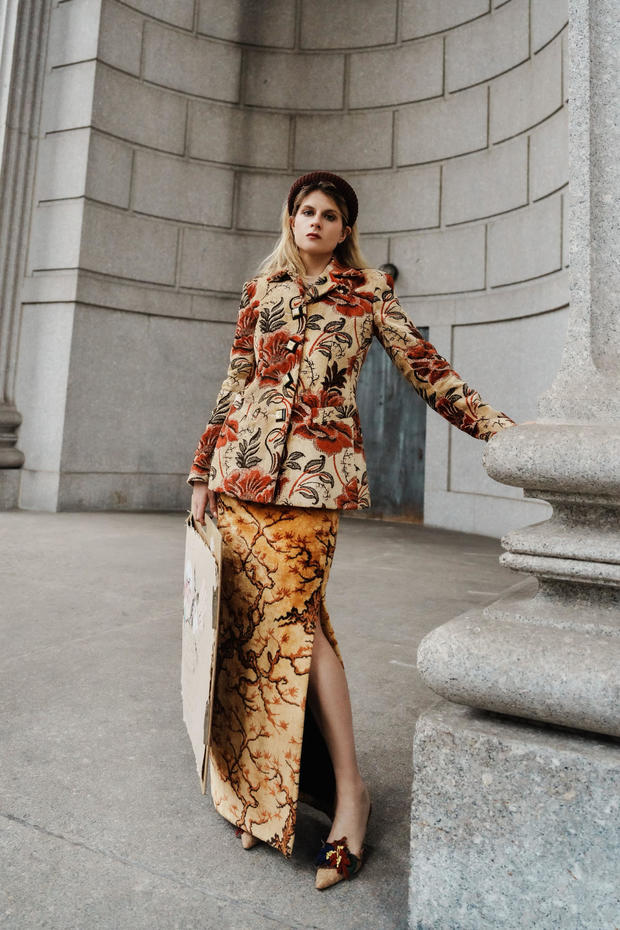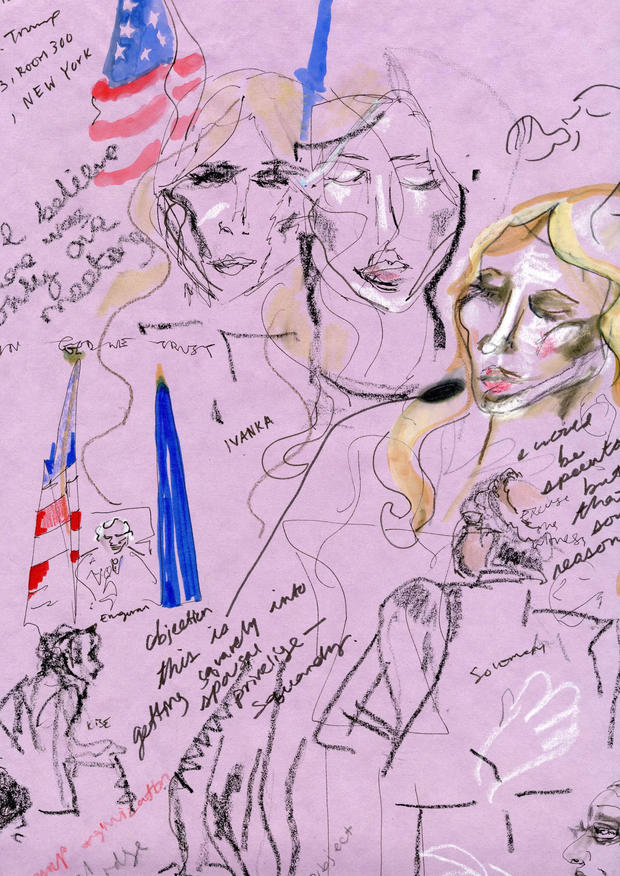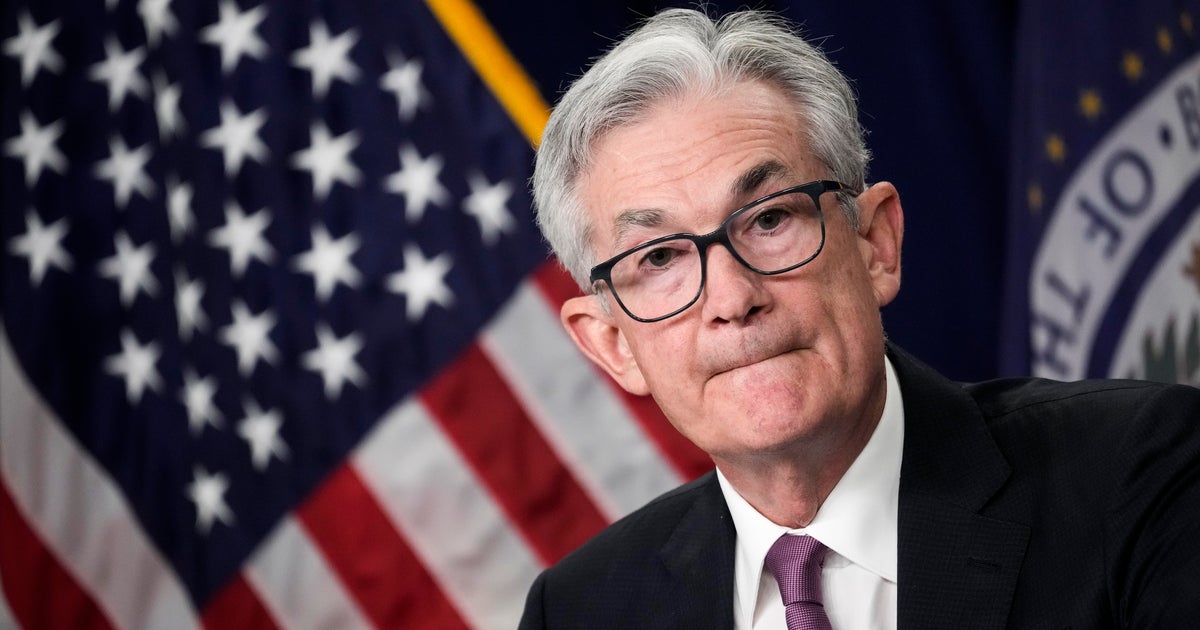CBS News
The art of Trump’s trials: Courtroom artist turns legal battles into works of art
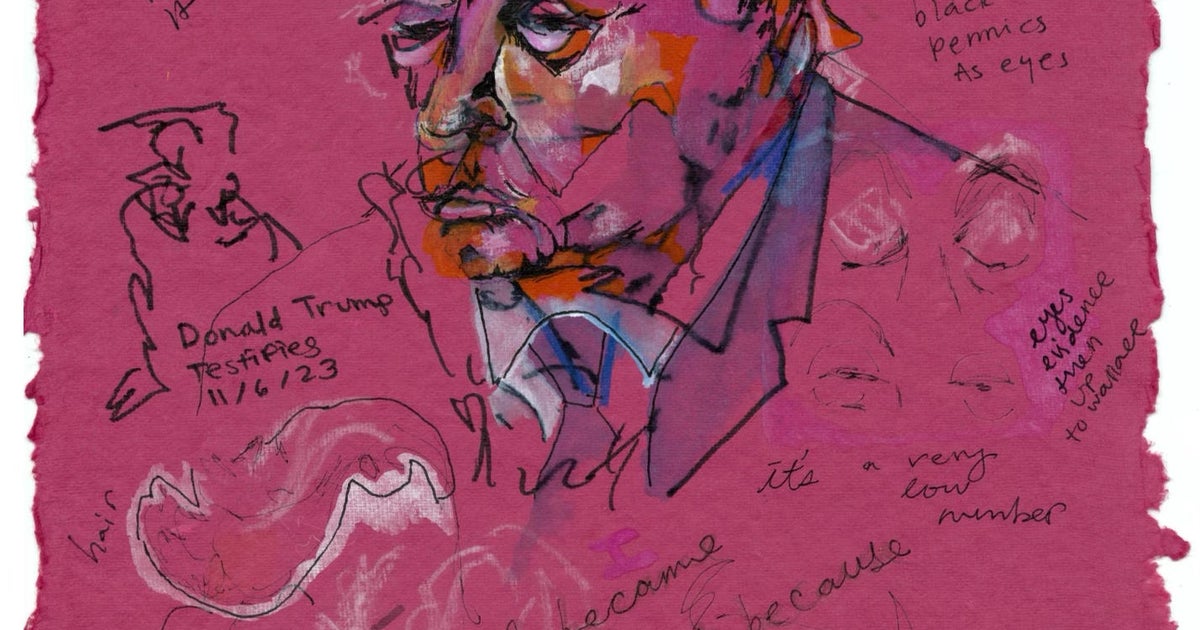
“We have the Mona Lisas of properties,” said former president Donald Trump, in a newly released video of an April 2023 deposition obtained by CBS News. “I have some of the greatest pieces of property in the world.”
“I say they’re ‘paintings,'” he continued. “You put a painting on the wall. It doesn’t throw off your cash flow, but you can sell certain paintings for a tremendous amount of money. That’s what I have.”
The comparison of real estate to artworks continued throughout the deposition, which centered on the “iconic” properties at issue in his New York civil fraud case, including Trump Towers, 40 Wall Street, Mar-a-Lago, Seven Springs, and the Turnberry golf course in Scotland.
“They’re the Mona Lisas, the Renoirs of property, many of my properties,” said Trump.
Isabelle Brourman
Some of what Trump considers his greatest works and his real estate empire are in jeopardy in the civil fraud trial. Attorney General Letitia James has asked for a lifetime ban on Trump in New York’s real estate industry. He has already been found liable for fraud and has denied all wrongdoing.
It was unexpected for art to play a central role in a trial about allegedly fraudulent financial statements and false property valuations.
“When Don Jr. was on the stand, that was the entire conversation,” said artist Isabelle Brourman, who sketched the trial. “My father is an artist. Appraisals are an art, they’re not a science. And so there’s a lot of using the vehicle of art to explain away breaking the rules.”
During the trial, Donald Trump Jr. testified that his father is an “artist with real estate,” and described properties as a “canvas” for his father’s art. He called Trump a “creative guy” and a “genius.”
Even the final words of Trump’s closing argument touched on art, when his attorney Alina Habba declared that “real estate is not a science, it is art.”
Isabelle Brourman
Much of the trial felt like true political theater. On the final day in court for closing arguments, Trump and his attorneys gave their most theatrical performances yet, with Trump himself launching into an unauthorized soliloquy in which he called the trial “a fraud on me.” Adding drama to the day, Judge Arthur Engoron received a bomb threat at his home that morning.
There to capture it all was Brourman. With no cameras allowed in court, artists like Brourman provide a window into the world behind the courtroom doors. But she is not a traditional courtroom sketch artist, whose work is usually intended for the news media. Portraying Trump’s trials and run for president is an art project that Brourman plans to exhibit. Her dream would be to show her work in the rotunda of the 60 Centre Street Courthouse, where the civil fraud trial stretched on for 44 days of testimony.
“Being a sketch artist is an opportunity to make art and observe some of the biggest moments that are happening right now in our democracy, in the court,” said Brourman. “Every sketch artist that has done it before has served the aesthetic of a network. And that’s not what I’m doing.”
Brourman first entered the world of court art when she decided to sketch the Johnny Depp v. Amber Heard trial. She showed those drawings in a gallery designed to look like a replica of the courtroom last year in Los Angeles.
Her intimate portraits feature expressive lines and scribbled text with fragments of testimony, legal arguments and her own observations. There is an atmospheric and narrative quality to her works, which feature a mix of watercolors, acrylic paint, colored pencil, and ink.
Isabelle Brourman
“I’ll do live writing, then mix that with very fast gestures and reactive mark making,” said Brourman. “I’ve never had this need for something to resemble something perfectly, it’s more of a feeling.”
Brourman herself was like a piece of art in the courtroom, wearing bold outfits by fashion designer Mia Vesper, who styled her for the trial.
“When we choose outfits, we’re like, ‘What would be the most badass thing we could wear for this witness,'” said Brourman. “It’s like this secret additional layer of messaging that’s happening in the space. It’s like gaining agency in a place where the power dynamics are being examined, are set in stone, just like the legal space itself, the courtroom.
“To be able to be powerful in that space and make choices, it feels good,” she added. “And it’s a statement.”
Mia Vesper Tapestry Suit shot by Noa Griffel
Her work has attracted the attention of Trump, who remarked that it was “amazing.” He then touched his neck near his tie and said, “I gotta lose some weight.”
She was initially drawn to Trump when she went to the New York hush money arraignment, in which he was accused of falsifying business records to cover up a potential sex scandal involving porn star Stormy Daniels. It was Trump’s first day in court as a criminal defendant, and the first time an ex-president had been indicted on criminal charges. Trump has pleaded not guilty.
“I felt myself wanting to sketch him and felt his power and his confidence,” Brourman recalled. “That kind of kicked off me wanting to dive into his candidacy for the next year or so, and be a part of documenting the history of it in a really immersive way.”
Brourman diligently documented the New York civil fraud trial, often working late into the night after court to finish her sketches from that day. She studied the trial’s participants so intently that she admitted, “even when I leave, I see these people anyways.”
But she was surprised that art was such a theme in the trial.
Isabelle Brourman
“It was the last thing I was expecting to hear about the most. I think art got defined in the legal setting as basically the space where it’s open to interpretation,” she said. “The idea that if you say it’s art, it’s art. Art was framed as the ultimate freedom.”
In a fitting ending, even the judge’s last words of the entire trial referenced artists, with his usual dash of wit.
“Thanks everyone,” said Engoron. “I could go on and on. The officers, the lawyers, the sketch artists – try to do a better job on my face though.”
Engoron has said he will do his best to issue a ruling in the case by Jan. 31.
CBS News
Biden comments on dangers of mysterious drones in U.S.

Watch CBS News
Be the first to know
Get browser notifications for breaking news, live events, and exclusive reporting.
CBS News
Paris Hilton’s bill to protect minors at residential treatment facilities heads to president’s desk
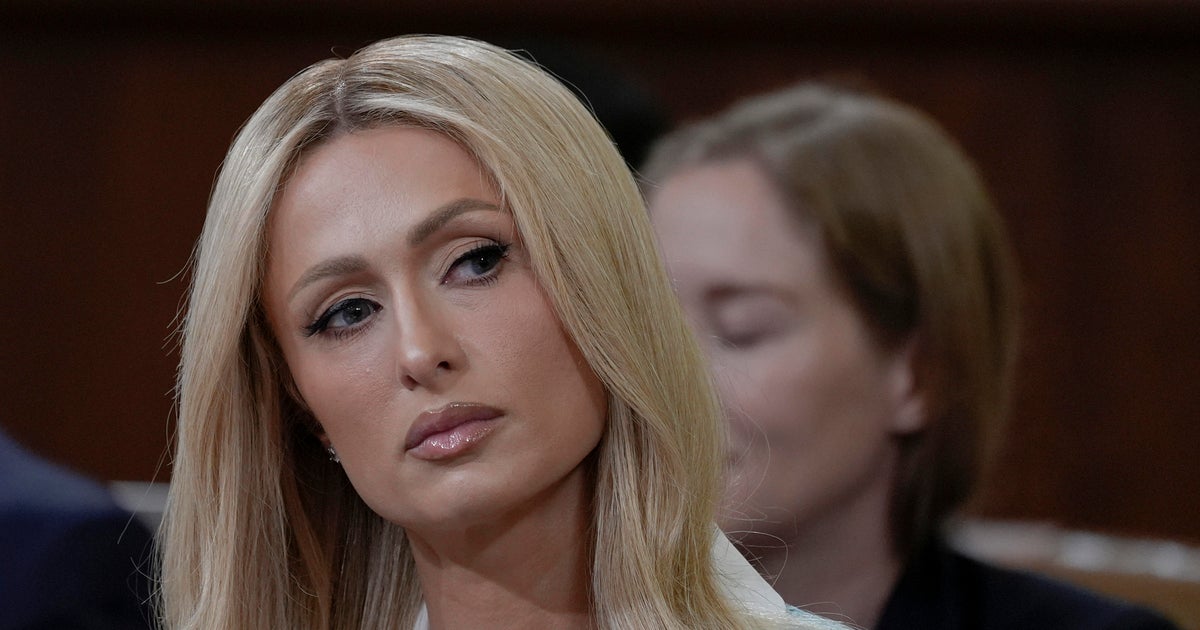
Heiress, model and actor Paris Hilton is the force behind a bill headed to President Biden’s desk that’s aimed at preventing the abuse of minors at rehab and other residential facilities.
The House passed the Stop Institutional Child Abuse Act in a bipartisan 373-33 vote Wednesday, after the Senate passed the bill by unanimous consent earlier in the week. It’s a cause that’s personal to Hilton, who says she was abused at residential treatment facilities as a teen. Hilton lived in a series of residential treatment facilities from the age of 16, testifying before Congress in June that she had been violently restrained, stripped of clothing and tossed into solitary confinement, among other experiences.
“Today is a day I will never forget,” Hilton wrote on Instagram. “After years of sharing my story and advocating on Capitol Hill, the Stop Institutional Child Abuse Act has officially passed the U.S Congress. This moment is proof that our voices matter, that speaking out can spark change, and that no child should ever endure the horrors of abuse in silence. I did this for the younger version of myself and the youth who were senselessly taken from us by the Troubled Teen Industry.”
Now 43, Hilton has championed child protection legislation on Capitol Hill for years, encouraging lawmakers to pass regulations to help protect troubled teens from abuse at treatment centers. Hilton met with lawmakers on Capitol Hill this week, urging them to take up the legislation before the 118th Congress ends.
Democratic Sen. Jeff Merkley and Democratic Rep. Ro Khanna introduced the legislation in the House and Senate, and they were joined by Republican Sens. John Cornyn and Tommy Tuberville and Republican Rep. Buddy Carter.
“Children across the country are at risk of abuse and neglect due to a lack of transparency in institutional youth treatment programs,” Khanna said in a statement. “The industry has gone unchecked for too long. Paris Hilton and other survivors of abuse in this broken system have bravely shared their stories and inspired change. I’m proud to lead this legislation with my colleagues to protect the safety and well-being of kids.”
The legislation creates a federal work group on youth residential programs to oversee the health, safety, care, treatment and placement of minors in rehab and other facilities. It also directs the Department of Health and Human Services to make contact with the National Academies of Sciences, Engineering and Medicine to make recommendations about state oversight of such programs.
Hilton is the great-grandaughter of Conrad Hilton, who founded Hilton Hotels.
CBS News
ATF director on mission to disrupt violent crime in schools

Watch CBS News
Be the first to know
Get browser notifications for breaking news, live events, and exclusive reporting.





